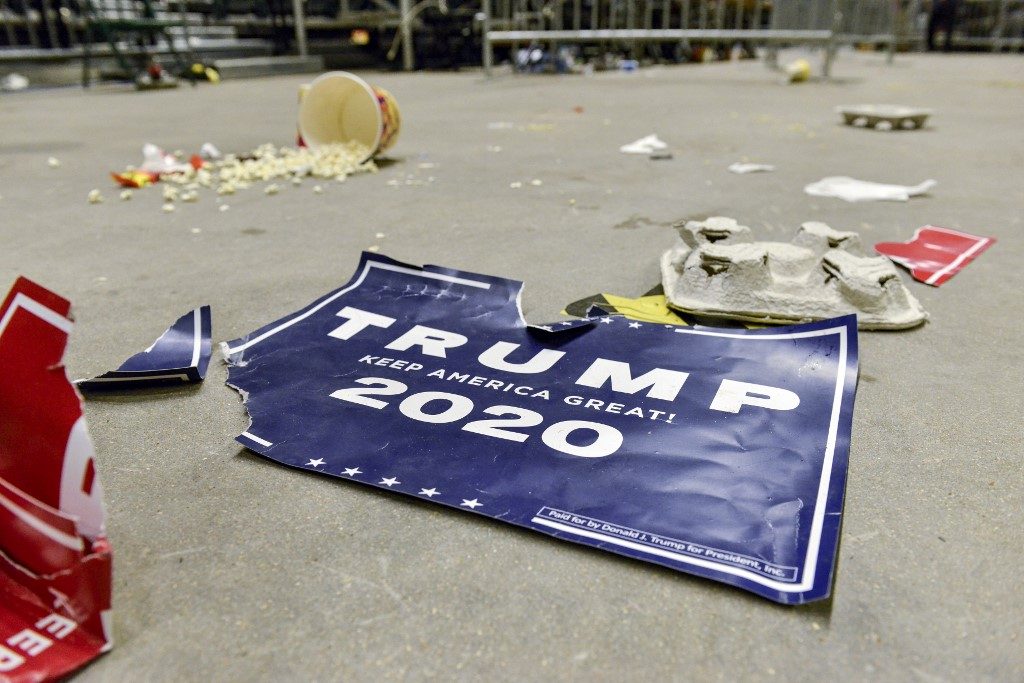SUMMARY
This is AI generated summarization, which may have errors. For context, always refer to the full article.

WASHINGTON, USA – In the more than 230 years of US history, only 3 presidents have suffered the humiliation of an impeachment trial.
Yet the rare and dramatic procedure is becoming increasingly normalized, some constitutional scholars worry, in a trend that looks unlikely to be reversed.
Impeachment is provided by the US Constitution as a means to remove a president found guilty of “treason, bribery, or other high crimes and misdemeanors.”
Only Andrew Johnson in 1868, Bill Clinton in 1998, and now Donald Trump have faced the prospect of being removed from office by the Senate.
The Constitution sets a high bar for the sanction which was not reached in the previous two cases: backing from 67 of the 100 senators.
Trump was acquitted almost entirely along party lines Wednesday, February 5 of both charges he faced – abuse of power and obstruction of Congress.
But while impeachment has been an era-defining event, trials and inquiries have recently been coming thick and fast, in historical terms.
Johnson’s impeachment came nearly a century after the nation’s founding and another century or so passed before Richard Nixon’s 1974 resignation to avoid his removal in the Watergate scandal.
But only 25 more years went by before Clinton’s 1999 Senate trial and, more recently, the threat of impeachment was raised, unsuccessfully, against George W. Bush over the invasion of Iraq.
Even Barack Obama was targeted, on rather shakier grounds, such as the false claim that he was born outside the United States.
‘Alarming trend’
“Trump’s impeachment is less a historic moment than a continuation of an alarming trend,” Michael Gordon, a former member of the Clinton administration, wrote on the Business Insider website.
“Considering the increasing division in our country…it’s likely that impeachment will soon become normalized,” he added.
Trump’s lawyers preferred not to dwell on the detail of the accusations facing the Republican president – that he enlisted a foreign ally, Ukraine, to help him cheat in the 2020 election and then covered up the plot.
Instead, they asserted that even if the facts were proven, they would not justify Trump’s removal from office.
“The bar for impeachment cannot be set this low,” argued Jay Sekulow, Trump’s lead outside counsel in the trial. That, he said, would “impact the functioning of our constitutional republic and the framework of that Constitution for generations.”
Members of a minority party, added Republican Senator Rand Paul, could simply use impeachment “as a weapon to get rid of a president they simply don’t like.”
A number of Republicans, it should be said, did indicate that they accepted the damning fact pattern presented by the Democratic-led House.
Democrats, meanwhile, contended that the case for Trump’s removal from office was the clearest that the country had ever seen.
A divided America
James Thurber, a political science professor at American University in Washington, said he was skeptical of the notion of impeachment as a weapon.
“There is no doubt that America has been polarized, is polarized and will continue to be polarized, because of a variety of phenomena, not the least of which is that we have this real urban-rural split,” he told AFP.
But impeachment is “such a serious thing that people will not want to go through that again,” he said. “There will be other mechanisms to compete between parties.”
Impeachment can, of course, be turned against those who wield it. Republicans paid a price at the ballot box the November after the Senate acquitted Clinton of charges stemming from his liaison with White House intern Monica Lewinsky.
Time can lend perspective, however, and many historians argue now that the damage to Republicans was short term, while the stain on Clinton’s character damaged Al Gore’s White House run against Bush in 2000.
In Trump’s case, the polls are mixed. It won’t be clear until the November 3 elections how big a factor – for or against – impeachment might be in voters’ minds.
‘Be more careful’
For Thurber, the future of impeachment will depend largely on the attitude of the next few presidents, who may be impelled by the current impeachment drama to “be more careful on how they speak and how they act than this president.”
Another political scientist, Mark Rozell of George Mason University near Washington, said a lower bar for impeachment may be no bad thing.
Echoing Thurber, he said it could give future presidents added incentive to “operate within the legitimate boundaries of their constitutional power.”
“They should be looking over their shoulder and wondering every single day, ‘How would this look on the front page of the newspaper tomorrow?'” he said.
“‘How would Congress react to this? Would this withstand a challenge in the judicial branch?'”
If Trump is re-elected, he seems unlikely to change his own approach to governance, Thurber argues.
Indeed, if Democrats retain control of the House of Representatives in the fall, says Thurber, “I could see the House going forward with another impeachment.” – Rappler.com
Add a comment
How does this make you feel?
There are no comments yet. Add your comment to start the conversation.